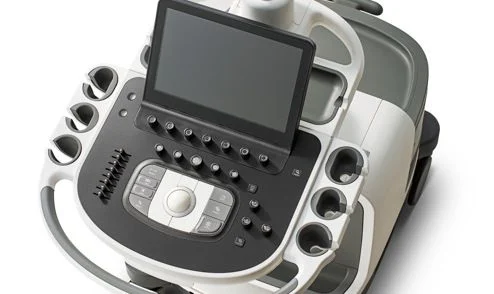Philips is showcasing the latest in a series of innovations aimed at helping cardiologists to improve patient outcomes and enhance clinical workflows.
Philips’ new EPIQ ultrasound platform features built in Anatomical Intelligence – a rich database of anatomic computer models and adaptive system technology – creating an “active” ultrasound device achieving exceptional clinical results in less time.
EPIQ provides an integrated 3D ultrasound technique that helps clinicians to interpret and quantify anatomies of interest, plan procedures and perform minimally-invasive interventions. The technology has been designed to overcome many of the usability, reproducibility and readability challenges related to conventional ultrasound, and to bridge the workflow between diagnosis, therapy planning and treatment.
“Because of its cost-effectiveness and versatility, ultrasound is one of the fastest growing segments in medical imaging, but it is also a highly competitive market where you need to deliver real added value in order to set yourself apart from the competition,” said Gene Saragnese, CEO Imaging Systems at Philips Healthcare. “EPIQ is a perfect example of what you can achieve when you combine the latest technological developments with real user insights to move an imaging technology into a completely new level of performance.”
Next to EPIQ, Philips is showcasing several new products at ESC 2013 that demonstrate its ‘Transforming Cardiology, Together’ approach of engaging with cardiologists to identify user needs, addressing customers’ top-of-mind, real-life issues and concerns. These new products include:
- For the first time shown in Europe are both the Philips IntelliSpace ECG and ST80i Stress Testing System. With the introduction of the IntelliSpace ECG - a multi-modality, multi-vendor and scalable ECG management system -, patient data can be accessed from other points-of-care applications for review, comparison and printing. Holter and Stress (e.g., ST80i) PDF reports as well as other modality reports can be verified, assigned, electronically signed, and easily exported to a customer’s EMR. The Philips ST80i Stress Testing System features a wireless patient experience, bi-directional connectivity and advanced decision support tools that enhance data review, patient care and workflow efficiency.
- Xcelera R4.1 - the latest release of the Philips Xcelera multimodality cardiology solution provides patient-centric access to cardiology data and examinations for image management, analysis and reporting. With both 64-bit and 32-bit operating system compatibility, Xcelera helps institutions leverage IT investments across departments, guarantees business continuity and enhances data intensive processing. The update also includes a thin client version of the Cardiology Enterprise Viewer (Xcelera CEV R2.1), where access to images is as close as an internet connection, providing clinicians with the benefits of increased ease-ohif-use and lower implementation costs.
Latest Articles
Philips, ESC
Philips is showcasing the latest in a series of innovations aimed at helping cardiologists to improve patient outcomes and enhance clinical workflows....










